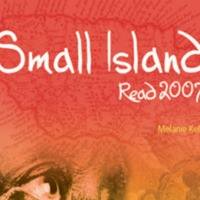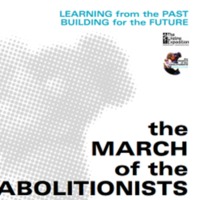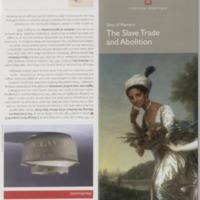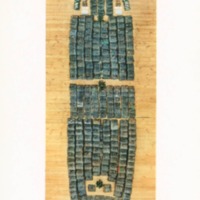Collection
Date
Location
Type
6 results
Remembering 1807
In 1807 Britain legally abolished the slave trade, although it continued to participate in and profit from the institution of slavery. In 2007 the British government committed public funds to mark the bicentenary of the Slave Trade Act. The Remembering 1807 project has collected and archived material relating to the many events and activities that took place during 2007. These records help us to locate and understand the place of slavery, the slave trade and its abolition in the UK’s public history, commemorative traditions and popular memory. Background to the collection...

Small Island Read 2007
This community-based mass reading scheme drew together partners from four areas of the UK; Bristol and the South West (Great Reading Adventure), Liverpool and the North West (Liverpool Reads), Hull (Hull Libraries) and Glasgow (Aye Write! Bank of Scotland Book Festival). 50,000 free copies of Andrea…

The March of the Abolitionists
The Lifeline Expedition began in 2000 as a reconciliation journey linking the European and African nations. The March of the Abolitionists was organised for 2007, aiming to bring an apology for the slave trade (especially the role of the church); to promote understanding of slavery and abolition by…

Cargo
Written by composer Paul Field, Cargo premiered in Hull City Hall in March 2007, sponsored by Hull City Council. Cargo featured contemporary songs, narration, dance and images that told the story of the struggles of slaves, the historical work of William Wilberforce and the abolition movement,…

Sites of Memory: The Slave Trade and Abolition
The Sites of Memory project was the first research by English Heritage (now Historic England) to provide an overview for the public of the buildings, memorials and grave sites across England that reflects the role of the slave trade in British history, and resistance to it. The project explored the…

Black Atlas
A performance by the London Shakespeare Workout based on George MacDonald Fraser's novel 'Black Ajax'. The play, set in Regency England, tells the historical tale of two enslaved men through dialogue, song and verse. One slave is from America, another is from Africa. The former, Tom Molineaux,…

La Bouche du Roi
La Bouche du Roi was created by artist Romauld Hazoumé, who lives and work in the Republic of Benin, West Africa. The multi-media artwork is named after a place on the coast of Benin from where enslaved Africans were transported. It comprised 304 plastic petrol can 'masks', each representing a…